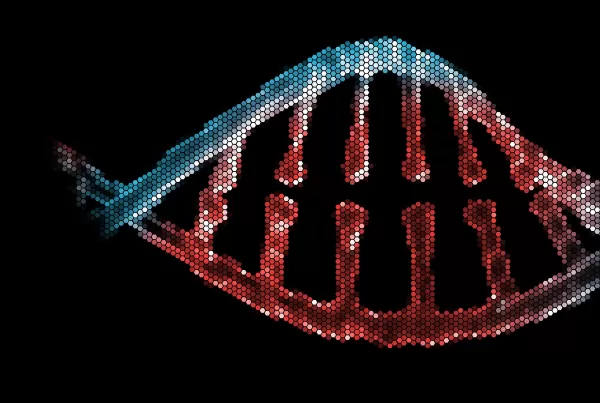FutureHouse releases AI tools it claims can accelerate science

FutureHouse Launches AI-Powered Platform to Revolutionize Scientific Research
Backed by Eric Schmidt, the nonprofit organization FutureHouse has unveiled its first major product: a platform and API equipped with AI tools designed to enhance scientific work. As the race to develop AI research tools intensifies, with numerous startups and tech giants like Google investing heavily, FutureHouse's entry into the fray marks a significant step forward.
Google, for instance, introduced its "AI co-scientist" earlier this year, claiming it could assist scientists in formulating hypotheses and planning experimental research. Meanwhile, CEOs from leading AI companies such as OpenAI and Anthropic have expressed optimism about AI's potential to accelerate scientific discovery, especially in medicine. However, skepticism persists among researchers who find current AI tools unreliable for guiding the scientific process.
Introducing FutureHouse's AI Tools
FutureHouse has released four AI tools: Crow, Falcon, Owl, and Phoenix. Each tool serves a distinct purpose:
- Crow - Searches scientific literature and answers queries about it.
- Falcon - Conducts in-depth searches across scientific databases.
- Owl - Identifies previous work within a specific subject area.
- Phoenix - Assists in planning chemistry experiments.
According to a tweet by Sam Rodriques, FutureHouse's AI Scientist agents are capable of performing a wide array of scientific tasks more efficiently than humans. By integrating these agents, FutureHouse claims to have begun rapidly discovering new biology.
Today, we are launching the first publicly available AI Scientist, via the FutureHouse Platform. Our AI Scientist agents can perform a wide variety of scientific tasks better than humans. By chaining them together, we've already started to discover new biology really fast. With… pic.twitter.com/wMMmZoGZPI
FutureHouse emphasizes that its AI tools have access to a vast corpus of high-quality open-access papers and specialized scientific tools. They also boast transparent reasoning and a multi-stage process that deeply examines each source. By scaling the integration of these AI tools, FutureHouse believes it can significantly speed up scientific discovery.
Challenges and Limitations
Despite these ambitious claims, FutureHouse has not yet achieved any groundbreaking scientific discoveries with its AI tools. The challenge of creating an "AI scientist" lies in navigating the myriad confounding factors involved in scientific research. While AI can be useful for broad exploration and narrowing down possibilities, its ability to engage in the kind of creative, out-of-the-box thinking necessary for true breakthroughs remains questionable.
Moreover, AI systems designed for science have often underperformed. For example, Google's AI, GNoME, reportedly helped synthesize 40 new materials in 2023, but an independent review found none of these materials to be genuinely new.
The technical limitations and risks associated with AI, such as its propensity to "hallucinate" or produce inaccurate results, further dampen enthusiasm among scientists. Even meticulously designed studies can be compromised by AI errors, particularly in high-precision tasks. FutureHouse itself acknowledges that its tools, particularly Phoenix, are prone to mistakes.
In its blog post, FutureHouse states, "We are releasing [this] now in the spirit of rapid iteration. Please provide feedback as you use it," indicating a commitment to continual improvement based on user input.
Exhibit at TechCrunch Sessions: AI
Interested in showcasing your innovations? Secure your spot at TechCrunch Sessions: AI in Berkeley, CA, on June 5. Present your work to over 1,200 decision-makers without breaking the bank. Book your table now—available through May 9 or while supplies last.
Related article
 Trump Prioritizes AI Growth Over Regulation in Race to Outpace China
The Trump administration unveiled its landmark AI Action Plan on Wednesday, marking a decisive break from the Biden administration's risk-averse AI policies. The ambitious blueprint prioritizes aggressive infrastructure development, sweeping regulato
Trump Prioritizes AI Growth Over Regulation in Race to Outpace China
The Trump administration unveiled its landmark AI Action Plan on Wednesday, marking a decisive break from the Biden administration's risk-averse AI policies. The ambitious blueprint prioritizes aggressive infrastructure development, sweeping regulato
 YouTube Integrates Veo 3 AI Video Tool Directly Into Shorts Platform
YouTube Shorts to Feature Veo 3 AI Video Model This SummerYouTube CEO Neal Mohan revealed during his Cannes Lions keynote that the platform's cutting-edge Veo 3 AI video generation technology will debut on YouTube Shorts later this summer. This follo
YouTube Integrates Veo 3 AI Video Tool Directly Into Shorts Platform
YouTube Shorts to Feature Veo 3 AI Video Model This SummerYouTube CEO Neal Mohan revealed during his Cannes Lions keynote that the platform's cutting-edge Veo 3 AI video generation technology will debut on YouTube Shorts later this summer. This follo
 Google Cloud Powers Breakthroughs in Scientific Research and Discovery
The digital revolution is transforming scientific methodologies through unprecedented computational capabilities. Cutting-edge technologies now augment both theoretical frameworks and laboratory experiments, propelling breakthroughs across discipline
Comments (1)
0/200
Google Cloud Powers Breakthroughs in Scientific Research and Discovery
The digital revolution is transforming scientific methodologies through unprecedented computational capabilities. Cutting-edge technologies now augment both theoretical frameworks and laboratory experiments, propelling breakthroughs across discipline
Comments (1)
0/200
![ThomasJones]() ThomasJones
ThomasJones
 August 18, 2025 at 11:01:00 AM EDT
August 18, 2025 at 11:01:00 AM EDT
This FutureHouse platform sounds like a game-changer for scientists! I’m curious if it’ll really speed up discoveries or just add more tech clutter. Anyone tried it yet? 🤔


 0
0

FutureHouse Launches AI-Powered Platform to Revolutionize Scientific Research
Backed by Eric Schmidt, the nonprofit organization FutureHouse has unveiled its first major product: a platform and API equipped with AI tools designed to enhance scientific work. As the race to develop AI research tools intensifies, with numerous startups and tech giants like Google investing heavily, FutureHouse's entry into the fray marks a significant step forward.
Google, for instance, introduced its "AI co-scientist" earlier this year, claiming it could assist scientists in formulating hypotheses and planning experimental research. Meanwhile, CEOs from leading AI companies such as OpenAI and Anthropic have expressed optimism about AI's potential to accelerate scientific discovery, especially in medicine. However, skepticism persists among researchers who find current AI tools unreliable for guiding the scientific process.
Introducing FutureHouse's AI Tools
FutureHouse has released four AI tools: Crow, Falcon, Owl, and Phoenix. Each tool serves a distinct purpose:
- Crow - Searches scientific literature and answers queries about it.
- Falcon - Conducts in-depth searches across scientific databases.
- Owl - Identifies previous work within a specific subject area.
- Phoenix - Assists in planning chemistry experiments.
According to a tweet by Sam Rodriques, FutureHouse's AI Scientist agents are capable of performing a wide array of scientific tasks more efficiently than humans. By integrating these agents, FutureHouse claims to have begun rapidly discovering new biology.
Today, we are launching the first publicly available AI Scientist, via the FutureHouse Platform. Our AI Scientist agents can perform a wide variety of scientific tasks better than humans. By chaining them together, we've already started to discover new biology really fast. With… pic.twitter.com/wMMmZoGZPI
FutureHouse emphasizes that its AI tools have access to a vast corpus of high-quality open-access papers and specialized scientific tools. They also boast transparent reasoning and a multi-stage process that deeply examines each source. By scaling the integration of these AI tools, FutureHouse believes it can significantly speed up scientific discovery.
Challenges and Limitations
Despite these ambitious claims, FutureHouse has not yet achieved any groundbreaking scientific discoveries with its AI tools. The challenge of creating an "AI scientist" lies in navigating the myriad confounding factors involved in scientific research. While AI can be useful for broad exploration and narrowing down possibilities, its ability to engage in the kind of creative, out-of-the-box thinking necessary for true breakthroughs remains questionable.
Moreover, AI systems designed for science have often underperformed. For example, Google's AI, GNoME, reportedly helped synthesize 40 new materials in 2023, but an independent review found none of these materials to be genuinely new.
The technical limitations and risks associated with AI, such as its propensity to "hallucinate" or produce inaccurate results, further dampen enthusiasm among scientists. Even meticulously designed studies can be compromised by AI errors, particularly in high-precision tasks. FutureHouse itself acknowledges that its tools, particularly Phoenix, are prone to mistakes.
In its blog post, FutureHouse states, "We are releasing [this] now in the spirit of rapid iteration. Please provide feedback as you use it," indicating a commitment to continual improvement based on user input.
Exhibit at TechCrunch Sessions: AI
Interested in showcasing your innovations? Secure your spot at TechCrunch Sessions: AI in Berkeley, CA, on June 5. Present your work to over 1,200 decision-makers without breaking the bank. Book your table now—available through May 9 or while supplies last.
 Trump Prioritizes AI Growth Over Regulation in Race to Outpace China
The Trump administration unveiled its landmark AI Action Plan on Wednesday, marking a decisive break from the Biden administration's risk-averse AI policies. The ambitious blueprint prioritizes aggressive infrastructure development, sweeping regulato
Trump Prioritizes AI Growth Over Regulation in Race to Outpace China
The Trump administration unveiled its landmark AI Action Plan on Wednesday, marking a decisive break from the Biden administration's risk-averse AI policies. The ambitious blueprint prioritizes aggressive infrastructure development, sweeping regulato
 YouTube Integrates Veo 3 AI Video Tool Directly Into Shorts Platform
YouTube Shorts to Feature Veo 3 AI Video Model This SummerYouTube CEO Neal Mohan revealed during his Cannes Lions keynote that the platform's cutting-edge Veo 3 AI video generation technology will debut on YouTube Shorts later this summer. This follo
YouTube Integrates Veo 3 AI Video Tool Directly Into Shorts Platform
YouTube Shorts to Feature Veo 3 AI Video Model This SummerYouTube CEO Neal Mohan revealed during his Cannes Lions keynote that the platform's cutting-edge Veo 3 AI video generation technology will debut on YouTube Shorts later this summer. This follo
 Google Cloud Powers Breakthroughs in Scientific Research and Discovery
The digital revolution is transforming scientific methodologies through unprecedented computational capabilities. Cutting-edge technologies now augment both theoretical frameworks and laboratory experiments, propelling breakthroughs across discipline
Google Cloud Powers Breakthroughs in Scientific Research and Discovery
The digital revolution is transforming scientific methodologies through unprecedented computational capabilities. Cutting-edge technologies now augment both theoretical frameworks and laboratory experiments, propelling breakthroughs across discipline
 August 18, 2025 at 11:01:00 AM EDT
August 18, 2025 at 11:01:00 AM EDT
This FutureHouse platform sounds like a game-changer for scientists! I’m curious if it’ll really speed up discoveries or just add more tech clutter. Anyone tried it yet? 🤔


 0
0





























